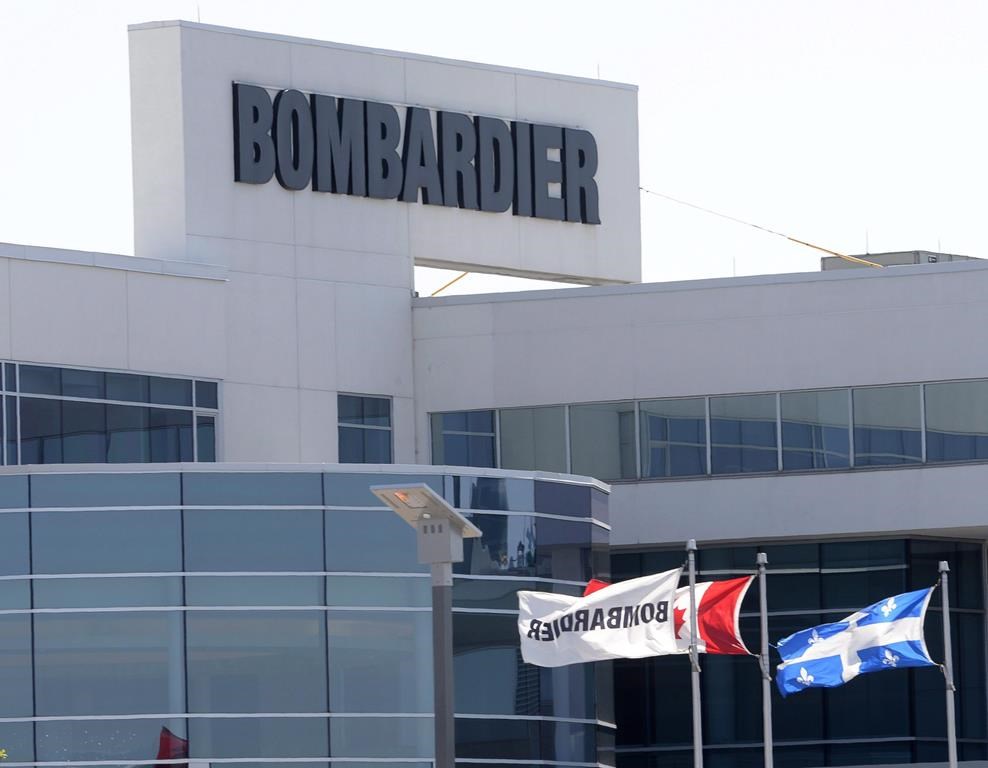Bombardier Inc. took a major earnings hit last quarter — with more losses to come — as fallout from the COVID-19 pandemic blocked aircraft deliveries and shut down operations across dozens of plants.

The company, which keeps its books in U.S. dollars, reported a $200 million loss in its first quarter despite a five per cent revenue boost and burned through $1.6 billion in cash as borders and factories closed in March when all non-essential work ground to a halt.
The virus wound up costing the company between $600 million and $800 million last quarter, said CEO Eric Martel Martel, who rejoined Bombardier last month after a five-year stint as the head of Hydro-Québec.
Though plants are gradually ramping up again, the plane-and-train maker expects business activity to hit a low point in the second quarter before mounting a slow comeback in the second half of the year.
“We saw a significant impact in Q1, with more to come in Q2, as a large part of our operations have been shut down for the past eight weeks,” Martel said on his first conference call as head of the company.
READ MORE: Bombardier to recall 11,000 workers as Quebec prepares to reopen economy
Travel restrictions meant that “we got caught with a whole bunch of airplanes that logistically we just couldn’t deliver,” said chief financial officer John Di Bert.
Business jet deliveries could drop by up to 35 per cent this year, Bombardier said, with the backlog down $800 million for the quarter to $13.6 billion. The second quarter alone could see another $1.6 billion in total cash burn, Martel said.

Get daily National news
Helping to offset the losses is the expected completion of a pair of divestitures amounting to more than US$1 billion.
The US$550-million sale of Bombardier’s CRJ jet program to Mitsubishi is expected by June 1, Martel said. The US$500-million sale of its aerostructures business in Belfast and Morocco to Spirit Aerosystems — initially anticipated in the first half of 2020 — should close “in the coming months.”
Martel said he does not foresee any pandemic-related delays to the US$8.2-billion sale of its rail division to French train giant Alstom SA — now undergoing regulatory scrutiny in the European Union — expected to close in the first half of 2021.
Bombardier recently negotiated an additional US$386-million “equity injection” from the Caisse de dépôt et placement, upping the Quebec pension fund manager’s stake in Bombardier’s train division to 36 per cent and leaving the company with $2.9 billion in financial liquidity — including $2.1 billion in cash — as of March 31.
READ MORE: Quebec to reopen some businesses as province eases coronavirus measures
The 78-year-old firm continues to grapple with share-price lows, credit downgrades and a debt of more than $9 billion.
It has become a penny stock with junk-status credit ratings as it slims down to a single revenue stream — private planes — just as the economy plunges into a downturn.
“We have a very, very solid backlog in the (Global) 7500 and we don’t see that moving a lot,” Martel said. The market for the smaller Learjet and Challenger airplanes, however, looks “a little bit more volatile.”
Despite a recession and consumer fears over travel, the CEO speculated that physical distancing concerns might boost demand for business jets.
“We have amazing air purification in these planes,” he told reporters on a conference call Thursday. “Maybe some companies will want to fly their executives privately rather than flying them commercial.”
“That’s something that hasn’t been proven yet,” he added, explaining that demand for smaller private planes such as the Learjet nosedived in 2008, “and the reality is that even 12 years later (it) has never really recovered.” Earnings at the rail division reached $2.2 billion — 60 per cent of revenue — last quarter, “but low-margin contracts remain a challenge,” said analyst Seth Seifman of J.P. Morgan.
READ MORE: Bombardier faces tough questions about future as share price, credit rating fall
Bombardier shuttered operations and sent 12,400 employees — 70 per cent of its Canadian workforce — on unpaid leave on March 24 as non-essential services screached to a halt across the country. About 11,000 furloughed staff — 9,000 of them in Quebec — will return to work over the next few weeks, benefiting from the federal wage subsidy.
Hundreds are already back on the line, with some Montreal-area assembly plants officially opening next week.
“I have given the clear message inside the company that we have not met expectations and must become much more predictable,” Martel said.
For the first quarter, Bombardier lost 11 cents per diluted share compared with a profit of $239 million or eight cents per share a year ago.
Revenue totalled $3.69 billion in the three-month period ended March 31, up from nearly $3.52 billion in the first quarter of 2019.
On an adjusted basis, Bombardier says it lost $169 million or 10 cents per share in the first quarter compared with an adjusted loss of $122 million or seven cents per share a year earlier.
Analysts on average had expected an adjusted loss of seven cents per share for the quarter, according to financial markets data firm Refinitiv.
The share price fell more than 11 per cent or six cents to to 47 cents in afternoon trading on the Toronto Stock Exchange.








Comments
Want to discuss? Please read our Commenting Policy first.